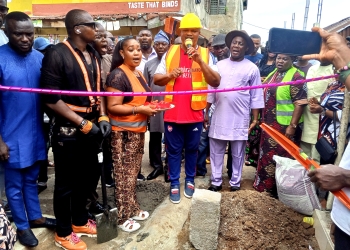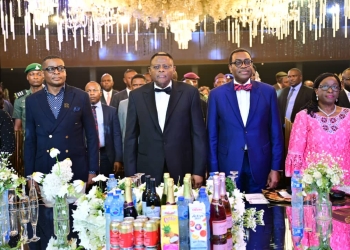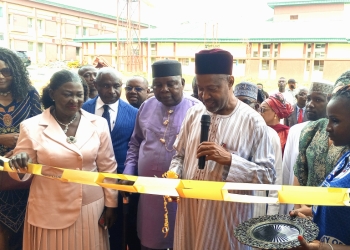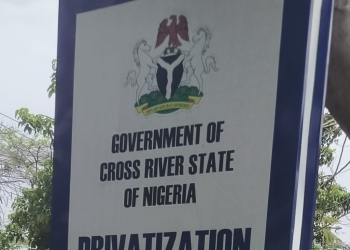By Ita Williams, Calabar
In a bid to promote cross-border trading between Nigeria and its neighbouring countries, the Civil Society Legislative Advocacy Centre (CISLAC) has called for policy dialogue and advocacy initiatives.
CISLAC’s Executive Director, Auwal Ibrahim Musa Raphsanjani, made this call during a two-day stakeholders’ policy dialogue event held at weekend at the Transcorp Hotel, Jade Hall, Calabar, Cross River State.
CISLAC, a non-governmental and non-profit advocacy group, in collaboration with Oxfam in Nigeria, has been actively engaged in capacity building programs focused on Fair Tax justice campaign, Resilience and Climate change Adaptation Programme, Public Financing for Agriculture, Intra-Africa & Global Trade Facilitation, and empowerment of traders, especially women in the informal sector.
The Executive Director, represented by Mr. Mayo Omowu, said the organization’s efforts aim to empower smallholder women farmers, youth groups, and community-based individuals in advocating for equity and engaging with stakeholders to address their needs.
He said that since incorporation in 2006, CISLAC has been involved in legislative advocacy work, complying with the Anti-Money Laundering Act of 2017 by reporting transactions above a certain threshold.
Through collaborations with Oxfam, CISLAC has advocated for fiscal and trade reforms to promote inclusive and sustainable development in Nigeria.
Working closely with the Calabar Chamber of Commerce, Industry, Mines, and Agriculture (CALCCIMA), he said “CISLAC has supported the advancement of trade, tax, and investment policy reforms in Cross Rivers State.
“These initiatives have led to the revision of tax rates for MSMEs in the state and the development of a cross-border trade ecosystem to eliminate non-tariff trade barriers”.
Recently, with the enactment of the Business Facilitation (Miscellaneous Provisions) Act, 2022, CALCCIMA has taken steps towards domesticating the act in Cross Rivers State and establishing public-private partnerships to enhance cross-border trade in the region.
These efforts aim to boost economic growth, create employment opportunities, and promote stability for local producers and communities.
In collaboration with the Calabar Chamber of Commerce, Industry, Mines, and Agriculture, CISLAC conducted a two-day policy dialogue session with relevant stakeholders to address challenges hindering intra-Africa trade and develop policies to improve the business environment at ports and borders in Cross Rivers State.
The primary objectives of these engagements are to familiarize stakeholders with the benefits of adopting the Business Facilitation Act, secure commitments towards its implementation, and lay out a framework for enhancing cross-border trading in Cross Rivers State.
The expected outcomes include stakeholders’ understanding of the Act’s benefits, commitment to its adoption, and the identification of requirements for its effective implementation in the state.
Through these strategic initiatives and partnerships, CISLAC and its collaborators aim to create a conducive environment for cross-border trading, drive economic growth, and empower local communities in Nigeria.
Meanwhile, the Executive Secretary, CALCCIMA, Mr. Keneth Asim-Ita in a statement said the state government through the office of the Commissioner for Commerce and Accountant-General, collaboration with CALCCIMA and the Presidential Enabling Business Environment Council (PEBEC) have combined efforts towards initiating the domestication of the Business Facilitation (Miscellaneous Provisions) Act, 2022 in Cross River State.
He stated that CALCCIMA has also initiated a Public-Private Partnership with the state government in the development of a Cross-Border trade ecosystem and the elimination of all non-tariff trade barriers along all trade corridors in Cross River State.
Asim-Ita said “the engagement with the National Trade Facilitation Committee and the World Bank Trade team is premised on the above initiatives with the specific objective to engage relevant state and non-state actors and secure their buy-in and contributions towards achieving both initiatives in Cross River State”.






